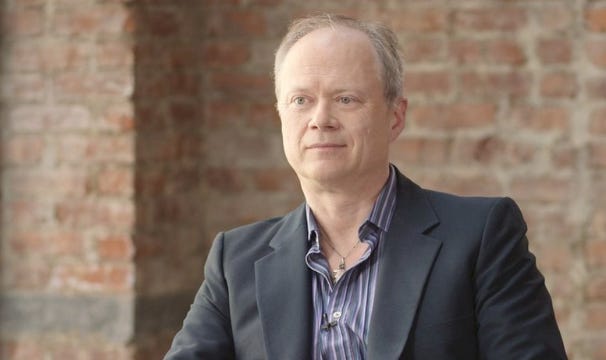Today’s Contemplation: Collapse Cometh CLXXXI
 Tulum, Mexico (1986). Photo by author.
Tulum, Mexico (1986). Photo by author.
The Politics of Dancing: The politicians are now dj’s…
It seems nowadays we’re always trapped in the silly season of election campaigning. Perhaps my memory is foggy but where it used to be a short window of inane proclamations and ever-grander promises (that never actually happen as declared), this period of electioneering now appears to carry on everyday, 24/7/365. If it’s not related directly to an upcoming election, it’s about extolling the great work of those in office and the shortcomings of those in opposition parties (or, gasp, wanting to dismantle ‘democracy’)–the bankrolling of which is via that theft mechanism of taxes or, even worse, perpetual debt (I just love that the narrative management/control and surveillance of domestic citizens being carried out by the ruling caste is paid for by the masses themselves that the ‘elite’ are marketing their beneficence to).
With my understanding of societal change through time, one of the aspects of our complex societies that I’ve come to hold as true is that our polities are ‘governed’ by people focused on improving/maintaining their personal/familial/influential benefactor prestige, power, and wealth. It is not, as they crow on about and market repeatedly, a yearning to benefit society-at-large and others–that’s the narrative they want us all to believe in and support. It is about maintenance/expansion of the wealth-generation/-extraction systems from which the ruling caste mostly and extraordinarily benefits.
In this vein, I have lost complete faith in our governing systems to do anything but leverage situations to this end. And a lot of the time this has to do with putting in place monetisation schemes in the form of a racket whereby–as U.S. Marine Corps Major General Smedley Butler argued about war–a small group benefits greatly at the expense of the many, and then, via mass marketing/propaganda/legislation, coercing society to support the scheme (and call out anyone, usually via the media, who criticises/challenges it). And our conditioning and those psychological mechanisms that strive to reduce anxiety-provoking/stressful thoughts/beliefs lead us to believe the narratives weaved by our ruling caste. It’s the water we swim in and don’t even realise it’s there.
“A racket is best described, I believe, as something that is not what it seems to the majority of the people. Only a small “inside” group knows what it is about. It is conducted for the benefit of the very few, at the expense of the very many. Out of war a few people make huge fortunes.”
-Smedley Butler, War Is A Racket (1935).
As I’ve written and argued before, our globalised, industrial societies can be characterised as full of such rackets that funnel national treasuries/wealth from the masses to the few that sit atop the power and wealth structures that develop as a society becomes larger and more complex. It’s not a conspiracy, it’s simply the epiphenomena of societal adaptations to increased organisational needs as the population grows and society problem-solves via greater complexity–thanks, surplus net energy and the technologies that have helped to produce these surpluses. That those who hold positions of power and influence conspire to maintain/expand these should be self-evident to anyone peering beyond the veneer of mainstream social stories.
What follows is another one of those difficult conversations I had with another following a Facebook post that popped up in my feed recently.

[NB: I saw Frank Zappa and the Mothers of Invention in concert at the London Gardens (London, Ontario) on November 5, 1980. My friends of the time and I were frequently listening to his music so a few of us had to see him when he performed in our home town.]
JK: You all had better get a handle on our USA 2 party system. If you contribute to the election of Republicans you ain’t seen NOTHING yet.
Steve Bull: JK, Right. Left. Center. Blue. Red. Green. Doesn’t matter. ‘Government’ protects the minority ruling caste, not the masses. Been that way for millennia. Elections are theatre to give the impression of choice and agency in a rigged and corrupt system.
TH: Steve Bull, I have a badge: “If voting changed anything, it would be illegal!” Let the jesters speak! https://www.youtube.com/watch?v=CjJLTslWp_Q
JK: Steve Bull, So 2016 made no difference? Trump/ Hillary, same same? Stupid. Clueless. The parties are not the same, not even close. You just need someone to blame for your failures, might as well be everyone.
TH, It’s easy to move to a better country. Do it!!
Steve Bull: JK, I think you need to read a bit of pre/history—especially as it pertains to how ruling systems developed and changed as large, complex societies arose (pay particular attention to the sociological/anthropological concepts of integrationist and conflict theories as to how hierarchical systems came about—the ruling elite want us to believe in the integrationist perspective but the evidence more broadly aligns with the conflict one).
And, yes, most every politician and political party is essentially the same—especially when it comes to ‘big ticket’ items. Some marginal differences may exist but in most ways there is little difference. Massive debt continues to accumulate. Various rackets expand and/or new ones arise (think military-security complex, big energy, financial institutions, media, big pharma, etc). Wars continue. Domestic surveillance expands. Inequality grows. Price inflation increases. Narrative management/control enlarges. Ecological systems continue to be destroyed in order to pursue the infinite growth chalice. Etc. Etc.
The most significant change that occurs after an election are the stories we tell ourselves and others. My team wins and all is right or improving in the world (and if it doesn’t it’s because the other team is interfering in our ability to get things done); the other team wins and everything continues to or will soon go to hell in a hand basket. And much, if not everything, that occurs after the election is interpreted through these lenses. We see differences in order to reduce the stress of cognitive dissonance that would occur if we recognize that we’re being bamboozled by those few sitting atop society’s wealth and power structures.
EM: Steve, it really is a shame that more people don’t have the comprehensive understanding how these systems work, who actually benefits (the most), and what the eventual outcome is. Too many people like J are out there telling people to move to a better country when they can’t see that they’re the ones being owned and bamboozled, especially here in the US.
TH: JK, Luckily I don’t live in the US…! https://www.youtube.com/watch?v=QiuA6Tfy-pM
We have our own problems fighting off 5 Eyes, NATO associate membership, and being a very close friend of the US….Empire stretches down here, and a lot of uber wealthy Americans have bolt holes here….
We live with the illusion of democracy, while living under a government of occupation on behalf of Empire. The political classes are owned, and their owners pass down agendas that are all about dividing and conquering any communities of resistance, and continuing to open up the country to rape/pillage/extraction. The owners are the corporations/banksters/elites. We are being farmed.
JK: EM, nobody owns me. I’m doing fine. I work hard and have a great life.
Our tool is the ballot box. Standing on a street, holding signs, protesting doesn’t do shit. Get involved, complaining won’t get you anywhere. Run for office, be psrt of the change. Revolution at this point is not in the cards.
Steve Bull, how do you propose fixing it? Complaining on Facebook? You aren’t going to change the Constitution and feeble little protests do nothing. Americans can run for office and if you look at Congress you’ll see Reps from the poorest of families. Get off your butt and run for office. Bitching Facebook won’t cut it. Going to take a lot of work.
EM: J, first of all, what we suffer from is a predicament, not a problem. Predicaments have outcomes, not solutions. So, you aren’t going to fix squat with politics, period. Vote for whoever you want, we and they lack agency to solve anything because it isn’t a problem we face.
As for Steve, he is Canadian, so he won’t be running for office here in the US.
Steve Bull: JK, Sure, just like this image suggests:

And, I wasn’t complaining. I was making a statement based on my understanding of pre/history.
JK: Steve Bull the mafia? B. S.
The hate I see on these posts and some MAGA cult people are very similar. Lot of whining, victimhood and makes me sick. Blaming Biden and Jews for genocide while HAMAS cowers behind civilians, does NOTHING except kill Jews.”Degrowth” while pretending to be off grid. I’ll give y’all another 30 days. Maybe you’ll figure out Tammy Baldwin is different than Ron Johnson. Biden is different than Trump. Makes me sick.
If I thought the USA and the mafia were the same I would ABSOLUTELY get out of the USA as fast as I could. No question. I sure as hell wouldn’t whine about it. I’d take action.
Steve Bull: JK, Perhaps you can take solace in the fact that this is not simply a US phenomena; it is an epiphenomena of large, complex societies. It pervades virtually every level of government across the entire globe and has been with humanity for some 12,000 or more years. We, in the West, just wrap it up in a cloak called ‘representative democracy’ and hold theatrical performances to give the masses the impression they have choice and agency in societal decisions and actions. All the while, a relatively small group of well-connected and influential power brokers continue to raid national treasuries (especially in terms of natural resources) and siphon wealth from the masses.
JK: Steve Bull, What do you mean “pre history?” Sounded like complaining. Hey, I have no problem with complaining —that’s what I’m doing. I’m complaining about the anti-semitism I see, hypocrisy, misunderstanding our political system, thinking the 2 parties are the same, whining without acting, and misinformation. For example, I saw an interview of an LGBQ woman holding a pro-Palestine sign without understanding that HAMAS would kill her if she were there. It’s insane. I’ve never seen an anti-Hamas word in these posts.
Steve Bull: JK, Prehistory is simply human history prior to written documentation. It begins a couple of million years ago up until about 5000 years ago with the introduction of writing systems. Most of our knowledge of those times is determined via physical anthropology and archaeology–the latter an area of study that I concentrated on for a few years and received my Master of Arts in. As far as a misunderstanding of our political systems, most people ‘misunderstand’ them because it is in the interests of the few that benefit (power and wealth wise) from them to keep the masses ignorant, mollified, and complacent…so they craft narratives that these systems provide agency and choice to the masses and that they are ‘representative’, and ultimately serve as a net benefit while hiding their true intent: the control and expansion of the wealth-generating and -extraction systems that provide their power, influence, and prestige. Quite frankly, sociopolitical systems are in place to protect the ruling caste of a society; they are not there to protect and serve the masses apart from throwing them a few bones occasionally. And there is about 12-15,000 years of evidence to support this assertion.
JK: Steve Bull So is your point that little has changed in all those years?



Steve Bull: JK, No, much has changed. But not the general tendency of a ruling elite to leverage as much as possible to their advantage.
JK: I do realize the power of big money, millionaires and billionaires, but smart voting will go a very long way toward fixing things. I guarantee you that if Hillary had won in ‘16 the world would be better. If Biden loses this year things will even worse than we’ve ever seen in our lifetimes. There is a gigantic difference between the parties now. Anyone with integrity who doesn’t vote or votes 3rd party is supporting Republicans. The danger is real.
Steve Bull: JK, We have to agree to disagree. And your comment aligns with what I said above: “The most significant change that occurs after an election are the stories we tell ourselves and others. My team wins and all is right or improving in the world (and if it doesn’t it’s because the other team is interfering in our ability to get things done); the other team wins and everything continues to or will soon go to hell in a hand basket. And much, if not everything, that occurs after the election is interpreted through these lenses. We see differences in order to reduce the stress of cognitive dissonance that would occur if we recognize that we’re being bamboozled by those few sitting atop society’s wealth and power structures.”
I also wanted to share this piece of writing from my late step-grandfather, Jack Flynn, written some 40+ years ago but that could have been penned today. I miss the long conversations/debates we used to have over any number of social and political issues of the day. He was one of, if not the most important influences in my thinking during my formative years.
Can This Be Our World?
As we waste and squander finite natural resources,
that are our children’s heritage.
As we watch their future disappear.
Are we witnessing the beginning of the end?
As I view the waste and squander,
one thing comes to mind.
“Where ignorance is bliss, tis folly to be wise.”
Seems to be the universal trend.
How did a species such as ours,
with the ability to reason, and think,
who certainly knows wrong from right.
Allow such a magnificent planet
to fall into such plight?
Truth and wisdom are lost in a barrage of words,
Which emit from mass media, twenty-four hours a day.
Endless innuendo, rhetoric and cliches,
We are expected to understand and obey.
In our modern world a few powerful nations
dominate the whole planet.
Co-operation is considered, passe.
They use and abuse, threaten and gesture,
invade smaller nations, and no one can tell them nay!
Inevitably there must come the time,
when the “immovable object, meets the irresistible force”,
then things should become more clear.
Being powerful nations, afraid to lose face,
they will probably try something Nu-clear.
This post was named after Re-Flex’s 1983 pop song based upon people’s expressive nature displayed during dance. https://www.youtube.com/watch?v=Ht-S4YQpteg. I love the music of the 1980s. I spent some years as a ‘disc jockey’ including a brief stint at Western University’s radio station and some paid party gigs. I also continue to hold a rather large album collection, with the very recent addition of a signed Men Without Hats disc cover that I purchased at a concert they performed at our town’s annual music festival and around the corner from our house–what was not to love? Free. Close by. And, mid-afternoon so I didn’t have a late night and mess up my early-to-bed, early-to-rise routine…

If you’ve made it to the end of this Contemplation and have got something out of my writing, please consider ordering the trilogy of my ‘fictional’ novel series, Olduvai (PDF files; only $9.99 Canadian), via my websiteor the link below — the ‘profits’ of which help me to keep my internet presence alive and first book available in print (and is available via various online retailers).
Attempting a new payment system as I am contemplating shutting down my site in the future (given the ever-increasing costs to keep it running).
If you are interested in purchasing any of the 3 books individually or the trilogy, please try the link below indicating which book(s) you are purchasing.
Costs (Canadian dollars):
Book 1: $2.99
Book 2: $3.89
Book 3: $3.89
Trilogy: $9.99
Feel free to throw in a ‘tip’ on top of the base cost if you wish; perhaps by paying in U.S. dollars instead of Canadian. Every few cents/dollars helps…
https://paypal.me/olduvaitrilogy?country.x=CA&locale.x=en_US
If you do not hear from me within 48 hours or you are having trouble with the system, please email me: olduvaitrilogy@gmail.com.
You can also find a variety of resources, particularly my summary notes for a handful of texts, especially Catton’s Overshoot and Tainter’s Collapse: see here.
It Bears Repeating: Best Of…Volume 1
A compilation of writers focused on the nexus of limits to growth, energy, and ecological overshoot.
With a Foreword and Afterword by Michael Dowd, authors include: Max Wilbert; Tim Watkins; Mike Stasse; Dr. Bill Rees; Dr. Tim Morgan; Rob Mielcarski; Dr. Simon Michaux; Erik Michaels; Just Collapse’s Tristan Sykes & Dr. Kate Booth; Kevin Hester; Alice Friedemann; David Casey; and, Steve Bull.
The document is not a guided narrative towards a singular or overarching message; except, perhaps, that we are in a predicament of our own making with a far more chaotic future ahead of us than most imagine–and most certainly than what mainstream media/politics would have us believe.
Click hereto access the document as a PDF file, free to download.






















